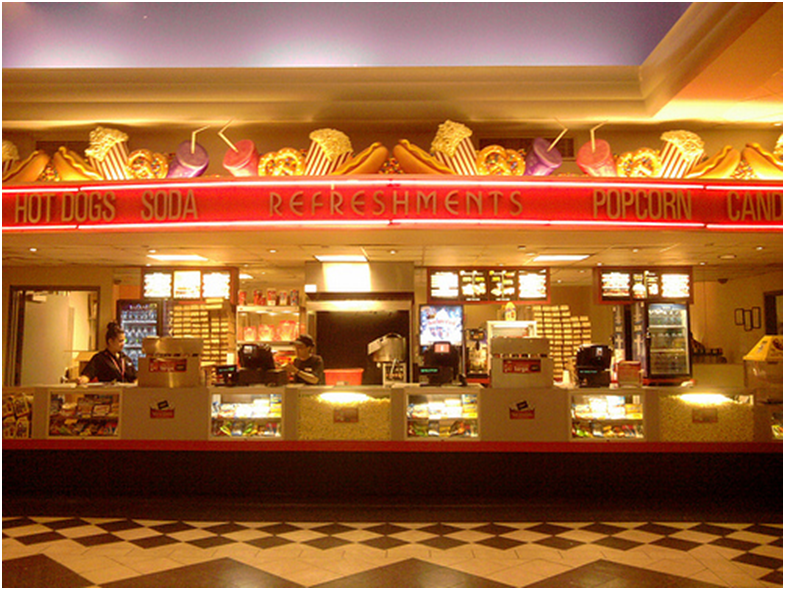Our society has come a long way since the black-and-white televisions of the 1930’s. Not only has technology revolutionized the television sets themselves, it has completely changed the way we interact with our televisions. Entertainment is becoming customizable and user-centric. This is great for society at large, but what is its ultimate impact on the entertainment industry?
Television Shows

Image Via Flickr by Beige Alert
What began as analog broadcast signals in the 1950’s for roughly 70 communities in the United States has grown to over 60 million subscribers and 34,000 communities. In June of 2009 Cable TV made a transition from analog to only digital broadcasting. This transition marked a revolution in the television industry towards higher quality performance.
Along with this move to digital broadcasting came the birth of On-Demand and DVR. These features allow the user to control what and how they watch cable television. With DVR they can record any show directly to their cable box, giving them the power to bypass commercials and watch shows without having to see them streamed live. The On-Demand features work similarly in that they have predetermined shows available to the user directly through a digital channel.
What is the impact of these advanced television features?
Allowing a user to record shows for later viewing gives them the opportunity to bypass commercials. This affects the quality of television advertisement and the desire for companies to pursue that channel. Using On-Demand gives the user the power to watch shows at the press of the button. This feature has completely revolutionized the way people watch television.
Sports

Image Via Flickr by @Doug88888
There has been a steady decline in attendance to for many sports teams. Many people claim that the advancement of the at home viewing experience is the forefront of this decline. People no longer have to physically be at the games to get the experience of sporting events. With the massive size of televisions, high quality of surround sound, and other digital features; it has never been more comfortable to watch your favorite sports teams play.
For instance, Direct-Ticket.net will give you the power to watch any NFL game with its Sunday Ticket feature. This gives a fan the power to watch their favorite team even if they are across the country. It also lets you watch every game instead of having to just watch the teams at the stadium you are at.
What is the effect on sports teams?
Many teams are seeing a decline in season ticket holders and general admission sales combined. This has resulted in a number of teams dropping ticket prices to encourage purchased. They are also implementing promotional campaigns to draw crowds. Drastic measures call for some teams to blackout the airing of the games to local cable networks. Teams are trying their best to combat the declining audiences, but as long as technology continues to put more power in the fan’s hands the teams are likely to see a continued drop.
Movies

Image Via Flickr by SHOTbySUSAN
The entertainment industry has seen a drastic change in how people are watching movies now. With the evolution of On-Demand, Netflix, and RedBox people are beginning to gain more control of their viewing experience. As previously mentioned, technology has greatly increased the quality of at home viewing. Combined with the accessibility of streaming videos directly to a television, there is no need to physically go to a theater or even a brick-and-mortar rental store.
What is the effect on the Movie Industry?
Brick-and-mortar rental stores like Blockbuster were unable to sustain the mass adoption of companies like RedBox and Netflix. Netflix provided the same movies delivered directly to the individual’s home without any late fees. RedBox provided a substantially less cost to the customer for the same services. These features gave the user a much higher value and ultimately eliminated the need for physical stores.
Hollywood is faced with a growing dilemma. How can they afford to justify making these movies at such a high cost if the return they are getting is steadily declining? The answer is yet to be determined. They are beginning to promote features like 3D movies in an effort to enhance the theater experience. But, as with everything in technology, 3D is becoming commercialized as well.
It’s obvious to see that technology has greatly improved the personal entertainment experience. However, this does come at a cost. The effects of these consumer-centric innovations are greatly impacting the entertainment industry as a whole. If we give the users too much control are we going to diminish the quality of the actual entertainment? There has to be a balance between the entertainment industry and the audience. What do you think the future for the entertainment industry is?
DJ Miller is a graduate student at the University of Tampa. He is an avid gadget geek who spends most his time writing on anything tech related. In his spare time he likes to travel, play soccer, and watch movies. You can follow him on twitter @MillerHeWrote